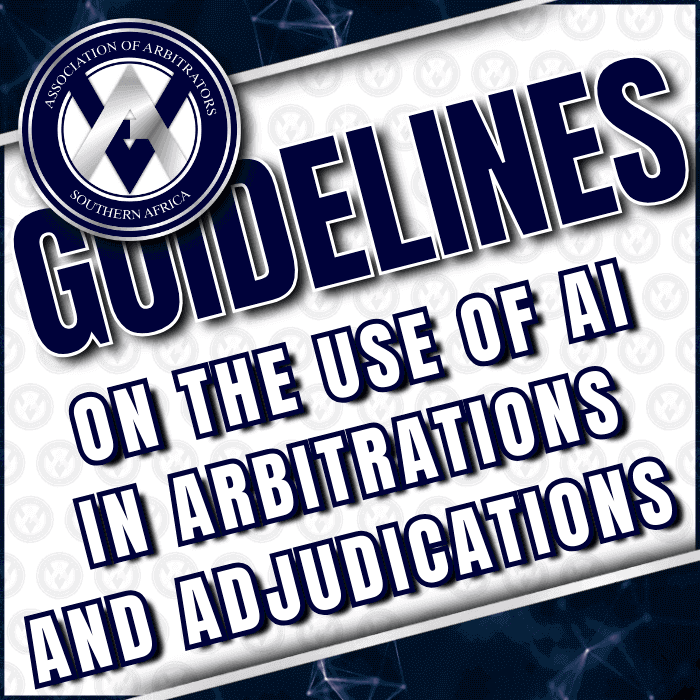
GUIDELINES ON THE USE OF
ARTIFICIAL INTELLIGENCE (AI)
IN ARBITRATIONS AND ADJUDICATIONS
Association’s Guidelines on the Use of Artificial Intelligence (“AI”) in Arbitrations and Adjudications are intended to serve as a guide to assist parties and tribunals using AI in an adjudication or ad hoc arbitration.
The Necessity of the Association’s AI Guidelines and their Importance to Members
AI Guidelines are necessary and important for the following reasons:
To Harness AI Benefits Responsibly
AI can improve efficiency, accuracy, and cost-effectiveness in arbitrations and adjudications. International surveys show that practitioners use or expect to use AI for tasks like research, data analytics, and document review, driven by time savings and quality improvements. By automating repetitive tasks and supporting case management, AI allows arbitrators and adjudicators to focus on complex legal analysis and decision-making. However, to fully realise these benefits, we must ensure that AI is applied within a well-defined and transparent framework.
To Safeguard the Integrity of Proceedings
The use of AI in arbitration and adjudication raises concerns about due process, confidentiality, and the enforceability of awards. If AI tools are used in ways that contravene party agreements or our rules, awards may be challenged. Guidelines help ensure that all parties understand their responsibilities, maintain human oversight, and uphold the core principles of fairness, accountability, and transparency.
To Address Ethical and Legal Risks
AI tools can introduce risks like bias, errors, or confidentiality breaches. Without oversight, determining accountability for AI-influenced decisions becomes challenging. Clear guidelines define AI use boundaries and reinforce an arbitrator’s or adjudicator’s duty not to delegate decision-making to machines.
To Provide International and Local Consistency
Guidelines have been adopted by other international arbitration organisations to balance innovation with procedural integrity and enforceability. By adopting similar principles, our Association ensures Southern African arbitrators and adjudicators align with global best practices while respecting local legal context.
To Promote Confidence and Trust
The legitimacy of arbitration and adjudication depends on the confidence of parties, practitioners, and the public. Proactively establishing guidelines demonstrates our commitment to upholding professional conduct and adapting to technological change.
Access the Association’s AI Guidelines
Access the Association’s Guidelines on the Use of Artificial Intelligence (“AI”) in Arbitrations and Adjudications here:[1]
NOTE: In order to download with flipbook functionality, please download the flipbook reader app here.
